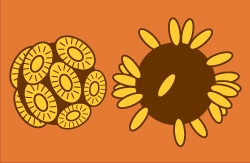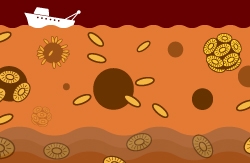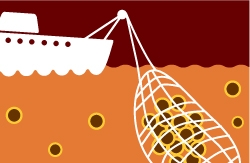Microorganisms have evolved for many millions of years in the ocean. Yet often, when microbes are studied in the lab, they are investigated under conditions that are vastly different than the environmental conditions in which they evolved. To understand microbial physiology, and the key roles that microbes play in the environment, we study microbes under conditions that mirror the environment.
Microbes are never solitary and have always engaged in various forms of interaction, such as competition, cooperation, and communication. These interactions have significant impacts on the microorganisms involved and their environment. In marine ecosystems, the interactions between microalgae and heterotrophic bacteria influence nutrient fluxes and the long-term burial of biogenic material in the ocean. These interactions have been occurring for millions of years and have shaped microbial ecophysiology.
Our research group develops reduced model systems with adjustable complexity to study mechanisms that underly microbial physiology, particularly in the context of interactions. By studying these model systems and constantly refining molecular tools tailored to marine bacteria, we can gain insight into mechanisms of microbial ecophysiology. Our model systems are relevant for research at the intersection of microbiology and Earth sciences and offer opportunities to investigate past environments.
We believe that exciting discoveries await when microbes are studied in an environmental context.
To take a 3D tour of our lab, click here!





